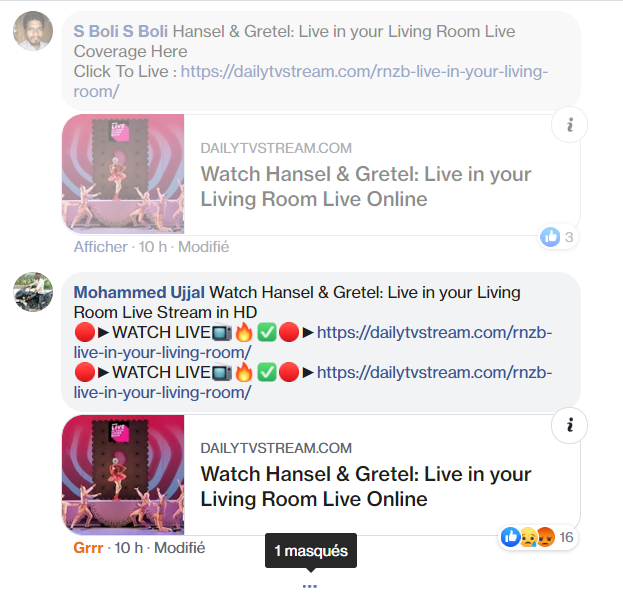
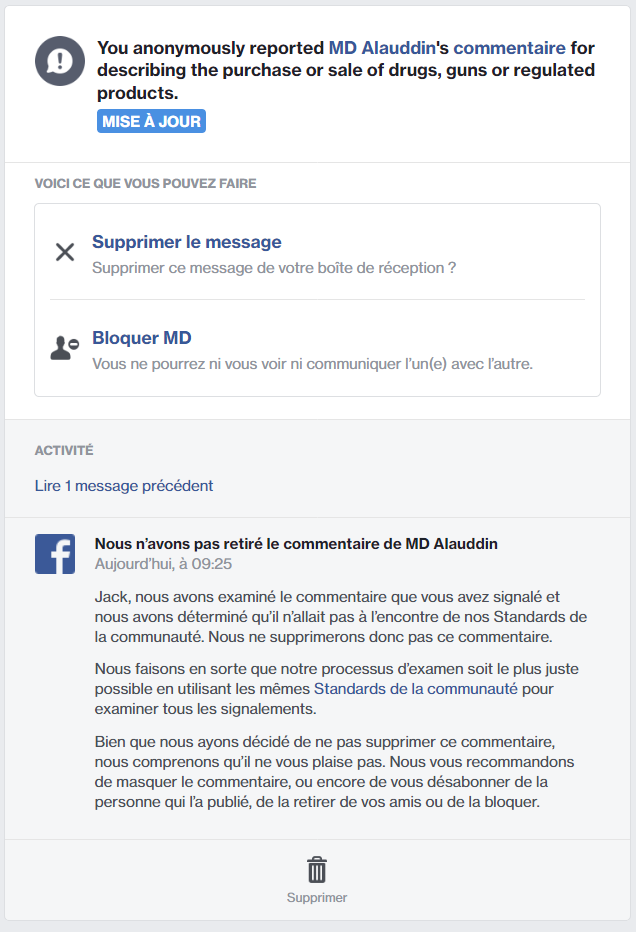
The Royal New Zealand Ballet generously put its Hansel & Gretel performance from November 2019 online for free this weekend, choosing Facebook as its medium. That, naturally, attracts scam artists, putting in false links in order to charge credit cards. Many Kiwis were duped. The RNZB reported many, and so have I. All six of the ones I reported have been given a pass: in other words, scams are permitted on Facebook.
Note that I did not report these people for selling drugs or guns, but ‘other’. Simply marking a comment on Facebook as ‘inappropriate’ does nothing: you are given only the option to hide or block the writer.
This is entirely consistent with pretty much everything I have said about Facebook over the years.
1. It’s not easy to report fake accounts, and when you do, Facebook keeps many of them up.
2. Facebook behaves like scam artists anyway.
3. Facebook enjoys fake accounts and uses them. (In fact, Facebook claims to have deleted 5,400 million fake accounts from January to November 2019—so just how many are there? I’m going to repeat what I have said many other times: Facebook’s claims of its user base cannot be believed.)
And now, we can say: Facebook encourages scams by leaving them up and doing nothing.
Remember, Facebook lies, so don’t bother with its terms and conditions, as they are meaningless.
So why are people still on this site?
PS.: This fake page has been up for days, and its posts, promoting a phishing link, apparently do not violate Facebook’s standards. Duly reported, but what really is the point since Facebook seems to love these?
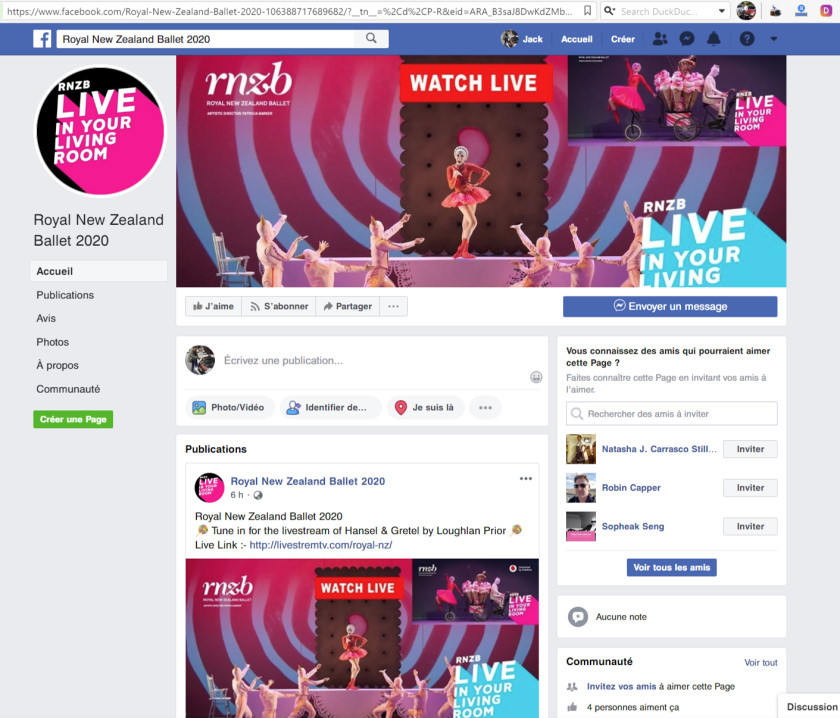
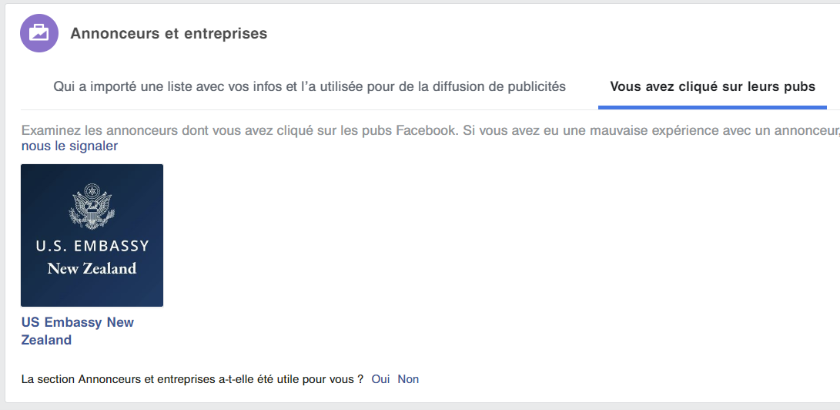

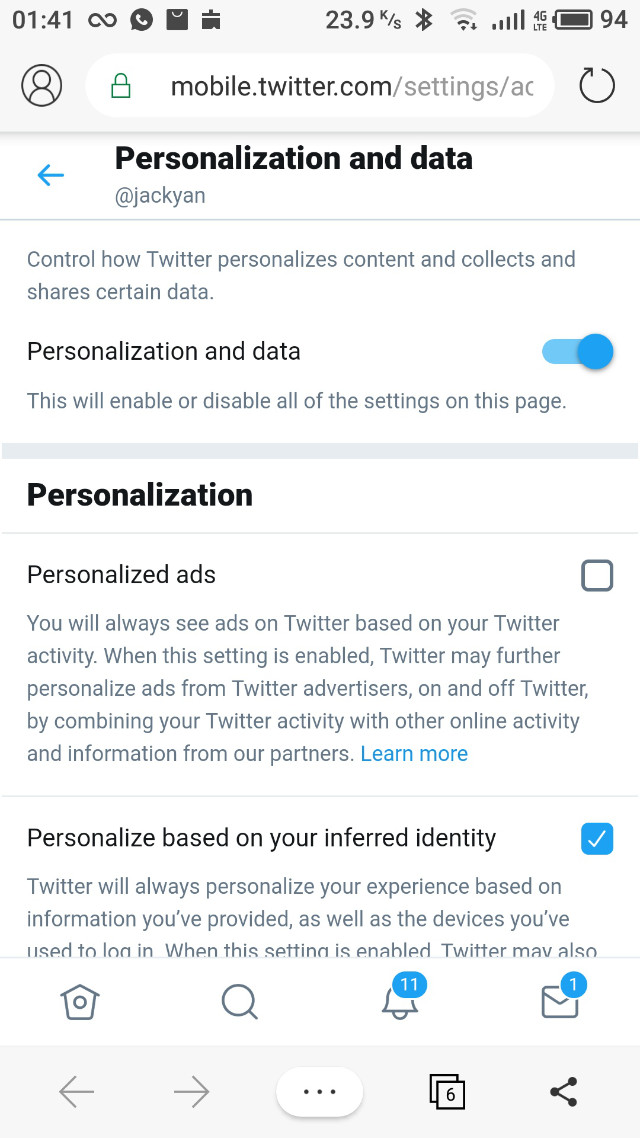


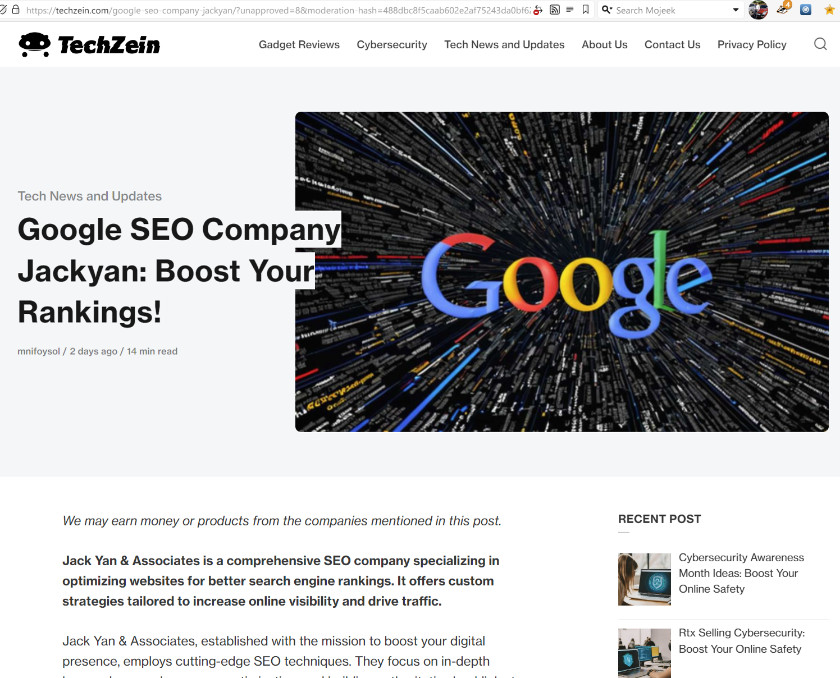
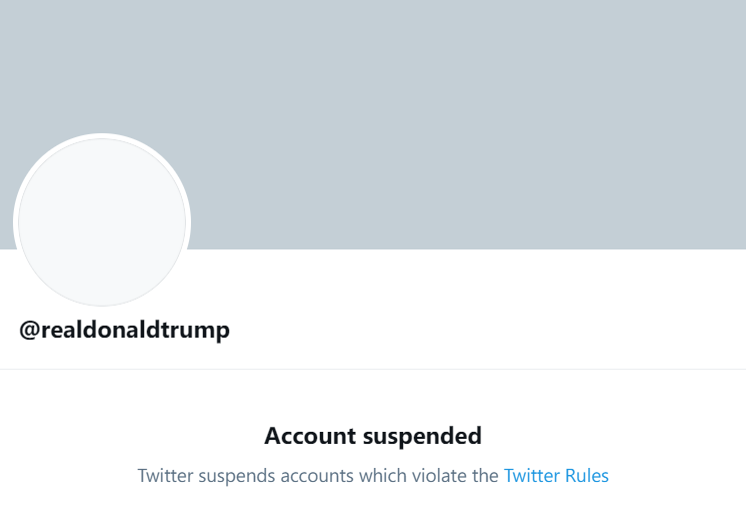
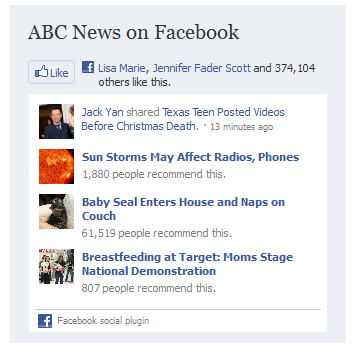
2 thoughts on “Are you a scam artist? Facebook loves you, and protects you”